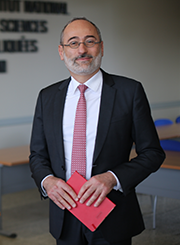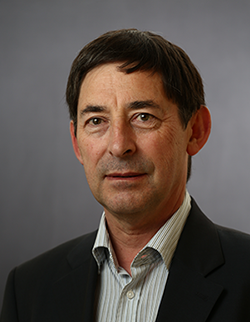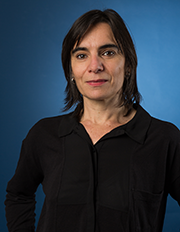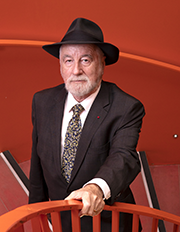
INSA LYON
Alumni Chair/INSA Lyon: INSA engineer, philosopher in action
With the Chair ‘Ingénieur INSA, philosophe en action. Penser et agir de manière responsable (Thinking and acting responsibly)’, INSA Lyon and its Alumni Association, the INSA Lyon Foundation and the commercialisation subsidiary INSAVALOR aim to question the role of the engineer and provide food for thought on how it is changing in a society transformed by key issues.
Climate emergency, ‘robolution’, crisis of representation and practice... Today's world is undergoing profound upheavals and is beginning to detect the obstacles in our socio-economic systems. The issues currently facing us are huge and in order to deal with them, the world must reinvent itself.
Engineers are at the crossroads of this new world and its challenges. Humanist as the founders of INSA Lyon wished, INSA engineers had to bear the societal responsibility of their actions but also of their ideas. This representation, which was developed at the end of the 1960s when the INSA model was created, has not aged, but resonates very strongly against a background of major changes.
How is this ‘engineer, philosopher in action’ changing in our society today? What wisdom can he develop in the face of current challenges, an uncontrolled and uncontrollable digital revolution, an uncertain and unforeseen future? What values will he be able to refer to and what ideal will he seek to convey in a world where humanity is struggling to look ahead? How will he manage to combine thoughts and actions, expectations and satisfactions, economic needs and vital necessities?
It is in an attempt to answer these questions, and to give full meaning to the humanism of the INSA engineer at a time of upheaval, that INSA Lyon and the INSA Lyon Alumni Association are launching the Chair ‘Ingénieur INSA, philosophe en action. Penser et agir de manière responsable’. Because the world is changing, you have to anticipate this and get moving.
To contribute to the development of this Chair, a participatory financing operation was created on 22 June 2020: https://crowdfunding.groupe-insa.fr/fr/projects/chaire-alumni-insa-lyon
Find out more about the Chair: https://chaires.insa-lyon.fr/chaire-institutionnelle-alumni-insa-lyon

Thinking about the changing role and responsibility of engineers with our alumni
By Frédéric Fotiadu, Director of INSA Lyon
For the past two years, INSA Lyon has been engaged in a forward-looking approach, inspired by the method developed by its founding father Gaston Berger. This work has enabled us to give careful thought to the possible future of our institution up to 2040 by envisaging various scenarios, some of which are disruptive. The Covid-19 crisis brutally confronted us with these exceptional scenarios, which at the beginning of 2020 were still considered unlikely. Faced with the issues resulting from these circumstances, the question of the role of engineers, already at the heart of our forward-looking approach, remains more topical than ever.
Through the diversity of the positions they occupy in all fields and business sectors, through the infinite wealth of their career paths and personal experiences, INSA graduates are both an extraordinary source of information and inspiration, and a great sounding board for these issues. They are also, by their number, a powerful lever for the transformation of companies and organisations in our societies. I am therefore particularly happy and enthusiastic at the idea of this INSA Lyon Alumni Chair to broaden our thinking on the place and responsibility of the engineer in today's world and in the future.
This absolutely exciting project will help to strengthen the links and interactions between our institution and its alumni network. It is also a great opportunity to bring our community closer to graduates who had moved away from it. In a world in search of meaning and new points of reference, this Chair is an invitation to get us all involved in thinking about our role in society on the basis of what has been the very essence of INSA Lyon since its creation: the model of the humanist engineer.
This ‘INSA trademark’ is based precisely on the ability to open up to other disciplines, particularly the humanities and social sciences, in order to grasp the plurality of the world and always question the societal and environmental impact of technologies. It is also about opening up to the world of arts, culture and sport, to develop our thinking and experience of other forms of sensitivity, interactions, practices, other quests for performance and excelling ourselves. Finally, it is a real citizen commitment to social openness and all forms of diversity in order to build a fairer, more inclusive, caring and altruistic world.
Educated according to this model carried forward by INSA and driven by its fundamental values, our graduates are particularly able to detect the multitude of strong or weak signals that herald the changes to come. They have the ability to consider them not only from a technological point of view, but also and above all from a comprehensive intellectual approach. It is precisely this dynamic that will be implemented within the Alumni Chair, at the service of our students, our lecturers and researchers, our partners and society in general.
It will be a question of always preparing ourselves better to face this uncertain, complex future, turned upside down by the present, by adopting a systemic vision to consciously and ethically engage in the major energy, environmental and ecological, digital, but also social and societal transitions, which will allow a desirable future to emerge.
 Repositioning the role of the engineer in society
Repositioning the role of the engineer in society
By Daniel Louis-André, INSA electrical engineering class of 1977 and president of the INSA Lyon Alumni Association
INSA engineers, male or female, are attached, maybe now more than ever, to all the values conveyed by the INSA model. Although their features, such as their frame of mind, have not been eroded by time, I think we can see that INSA engineers have changed a lot.
First of all, with the international dimension they have been able to gain, both in business and in wider society. Forty years ago, going on an exchange during your studies was the privilege of a few of us. Since then, mobility has become compulsory for all students and means of communication have developed considerably, making internationalisation much easier to manage.
In this world where everything has accelerated, we also see that INSA engineers are increasingly looking for meaning. Commitment, consistency with the company's values and the usefulness of the job are the driving forces in the search for employment, as well as in keeping a job. Salary is no longer enough for happiness. The model of society of recent decades is no longer dreamt of; it is even criticised. Society has to transform itself.
In my speciality, electrical engineering, engineers are aware that they are right at the heart of the transformation of the energy model. In this race towards low-emission mobility, young people are aware of a key issue: their impact on changing lifestyles to reduce energy consumption.
The environmental aspect and the place of human beings have become paramount.
In the projection of the industry of the future, from factory 4.0, amid big data, connected objects and ultra-technology, there is this path towards innovation at home, short supply chains and customised models.
Engineers will therefore be asked to be ever more creative, in a more comprehensive way. They will be asked to strike a balance between the expertise they will be able to develop with regard to cutting-edge technologies, and the need to work within a wider approach to better integrate the environmental aspect throughout the production cycle and place human beings at the heart of the processes, where they belong.
Engineers of tomorrow must play this role, have this global vision, develop this systemic approach and exercise their critical faculties more than ever. They must be able to look beyond their ‘heritage’ of skills even if it means questioning approaches that seem obvious.
Finally, I personally would like engineers to have a more important role in the city through their general knowledge and know-how, whereas today they have little impact. This is perhaps what we need to pass on to our young people: to learn not to be passive in the face of systems that lock them up in models. The role of the engineer needs to be repositioned, and my optimism leads me to believe that this is possible.
But to succeed in developing new approaches that respond both to engineers’ search for meaning and to the need to reposition their role in society, we must ask ourselves questions about the execution.
How should INSA engineers behave within the company in order to play their role? How will these engineers of tomorrow manage to play an important role in their company while casting their critical eye? How will they be able to initiate change without being seen as the ones who want to revolutionise everything? The concepts of interpersonal skills and understanding of the business world are fundamental here and must guide students’ education, beyond the scientific bases that must naturally be preserved.
I have been President of the Alumni Association since March 2019 and since then, I have been in regular contact with INSA students and graduates. With this Chair, we wish to provide answers to their concerns, particularly with regard to societal and environmental issues. And we can do it together, with the school and the INSA Lyon Foundation.
For me, this tripartite dimension is essential to the success of this project, as of many others. As alumni, we can make the link between those who think about education at INSA Lyon, working engineers and those in the making.
We wish to make this Chair a place for the exchange of ideas and experiences, which produces tangible results for all stakeholders: Schools and lecturers, working engineers and companies.
 Promoting the model of the humanist engineer
Promoting the model of the humanist engineer
By Laure Corriga, Chair of the Board of INSAVALOR
We support this original Chair, which is perfectly legitimate because it sticks to the DNA of INSA Lyon. Questioning the role of the engineer is part of the school's foundations and it is important to share this reflection with our ecosystem, alongside the Alumni Association and the INSA Lyon Foundation.
For me, engineers are people who, faced with a variety of issues and problems, provide technical and organisational solutions while being aware of the impacts and stakeholders that surround them. Their great quality is their adaptability. Today, in a context where economic, societal and environmental issues are more visible, engineers are becoming players whose role should be greater, with a more prominent place in society. Their vision should be essential, driven by this project approach that they mastered through their education.
The role of the engineer is changing because society is changing. In a world that is becoming more automated, engineers will be forced to change, to take new parameters into consideration. Beyond technological innovation, they will have to measure the impact of their decisions on the societal and environmental levels and, further on, invent new models, in particular by calling on their creativity. They will have to live with change but also initiate it. They will change in a more internationalised context, with collaborations for less immediate responses.
INSA introduces its students to this aim, and wishes to provide them with the necessary knowledge and skills. From this Chair, I would like to see a sort of certification for humanist engineers, which would allow us to bear witness to the INSA career path and the comprehensive approach acquired through education.
INSAVALOR can, on a very operational level, contribute to the work of the Chair on aspects of continuing education and develop educational modules consistent with the philosophical approach taken by this Chair. Moreover, as a player in the field, we will be able to hear the expectations of companies and witness their changes. Some of them have already undertaken a fundamental rethink and have understood that they must flourish with new, more committed generations. Others are working on their employer brand and are moving in this direction.

Strengthening the link between different generations of engineers by placing the very philosophy of the profession at the heart of discussions
Jean Guénard, 8th INSA civil engineering class and President of the INSA Lyon Foundation The engineer’s environment has changed since INSA was founded in 1957. For its co-founder, Gaston Berger, man was then at the centre of all concerns. Today, more than sixty years later, we can see that students defend another position: the Earth is now at the centre of their concerns. This concept of ‘Earth in danger’, which was reserved only for a few slightly marginalised elites at the time, has become omnipresent today. The concepts of frugality, repairs and savings have returned to the fore and humanist engineers have this awareness that the earth's resources are not inexhaustible. Engineers, who must henceforth think not only of themselves, must make their contribution to social, economic, intellectual and cultural change in the world around them, and in the organisation of work.
I therefore await from this Chair, with great interest, a practical and current redefinition of the concept of the humanist engineer, where we refer to man but also to the Earth. But for me, engineers of tomorrow are not, apart from this environmental aspect, so different from what they were yesterday. With excellent technique and cutting-edge expertise in their speciality, they have a solid education and an openness beyond their field of expertise, coupled with a general culture that must be as broad as possible.
For me, engineers are people who are interested in what is happening around them, and who put their skills at the service of their values. These are values with which they agree from the time of their education at INSA. These strong values were conveyed by the school when I was a student myself. I am one of those who have had access to this excellent education, even though I am far from the world of higher education. My parents, who were farmers and then grocers in Le Creusot, supported me in my schooling, which was rather satisfactory. Thanks to them, I was able to go to INSA and then benefit from a scholarship in my second year. At the time, I didn't know that I would succeed in the extraordinary feat of ending up in a career rich in dozens of works of art, civil engineering, undergrounds, railways and roads, ports and maritime works and the construction of a unique structure: the Millau Viaduct. Luck? Intuition? Audacity? Ambition? No doubt a bit of all four, but above all a taste and a developed practice of team motivation.
Alone, I am nothing. Together, everything, absolutely everything, is possible
I started out as a works manager and worked my way up through the ranks at EMCC and then Eiffage, until I became President of the Infrastructure division. In my speciality, civil engineering, we design, we build, and we can monitor the implementation. This is a field where we can look to the future. Today, the need for new infrastructure is no longer as strong, and the time has come to renew the heritage and carry out preventive maintenance on buildings. It's a real challenge for engineers in my speciality to deal with what already exists. Thanks to this Chair, driven by the alumni, the link between different generations of engineers will be strengthened, by placing the very philosophy of the profession at the heart of discussions. And, again, I hope to make the unthinkable possible.
Keywords (tags)
News list
L’INSA Sailing Club en route vers le plus grand événement sportif étudiant d’Europe

